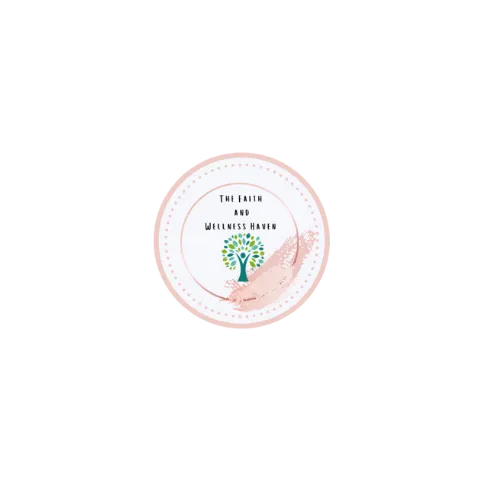
The Second Brain
That's right, your colon! This important part of your digestive system is sometimes referred to as your second brain. And with good reason - the colon is home to trillions of bacteria that are vital to our health. It helps to absorb water and electrolytes, and it also eliminates solid waste from the body. The colon is also responsible for producing certain vitamins and minerals that the body needs.
Without a healthy colon, the body would not be able to function properly. There are many different illnesses and conditions that can affect the colon. Some of these include Crohn's disease, ulcerative colitis, and diverticular disease. These conditions can be very serious, and they can often lead to death. That is why it is so important to have a healthy colon.
In fact, the health of our gut microbiome has been linked to everything from our mood and mental health to our immunity and even our risk of developing cancer.

Microbiome?
So, what exactly is the microbiome? The microbiome is the collective term for all of the microbes - bacteria, fungi, viruses, and protozoa - that live in our bodies. And the gut microbiome is the biggest and most important community of microbes in our bodies. The gut microbiome weighs about as much as our brains and contains more than 100 million neurons - that's more than the spinal cord!
These microbes carry out vital functions in our bodies, such as synthesizing vitamins, breaking down fiber, and boosting immunity. They also play a role in communicating with our nervous system via the vagus nerve - the longest cranial nerve in our bodies. In fact, some researchers believe that dysbiosis - an imbalance of the gut microbiome - may be at the root of many diseases and even weight gain.
The Link Between Dysbiosis and Disease
Let's take a closer look at the link between dysbiosis and disease.
The composition of the gut microbiome varies from person to person, but there are certain microbial species that are essential for our health.
When the balance of microbes in the gut is disrupted, this is known as dysbiosis. Dysbiosis has been linked to a variety of diseases, including obesity, diabetes, inflammatory bowel disease, and even cancer. The mechanisms by which dysbiosis contributes to disease are not fully understood, but it is thought that dysbiosis alters the way in which our bodies absorb nutrients, produce energy, and fight off infection.
There are a number of factors that can contribute to dysbiosis, including diet, antibiotic use, stress, and age. Dysbiosis can also be caused by infections or other conditions that disrupt the normal functioning of the digestive system.
Treating Dysbiosis
Treating dysbiosis requires restoring the balance of microbes in the gut. This can be done through diet, probiotics, or fecal microbiota transplants (FMT). FMT is a procedure in which healthy stool from a donor is transplanted into the intestine of a patient with dysbiosis. FMT is considered to be a "last resort" treatment for dysbiosis because it carries a risk of transmitting infectious diseases from the donor to the patient. However, FMT has been shown to be highly effective in treating severe cases of dysbiosis.
From mental health to cancer risk, the health of our gut microbiome has been linked to a wide variety of conditions. We will discuss the cancer risk in another blog post. Let’s take a look at the link between mental health and the colon.
Mental Health Disorders Linked to Colon Dysfunction?
A new study has found that mental health disorders may be linked to colon dysfunction. The findings, published in the journal Gut, suggest that patients with mental health disorders are more likely to suffer from problems with their gut microbiome - the community of bacteria that lives in the digestive system. The study's authors say that the findings could have implications for the way we treat mental health disorders, as well as for the development of new treatments.
The study looked at data from over 1,000 patients with mental health disorders, and compared it to data from a similar number of healthy controls. The researchers found that patients with mental health disorders were more likely to have an imbalance in their gut microbiome. They also found that patients with mental health disorders were more likely to suffer from inflammation of the colon.
The findings suggest that there may be a connection between mental health and colon function. The authors say that the findings could have implications for the way we treat mental health disorders. they say that further research is needed to confirm the link between mental health and colon function, and to understand how the two are connected.

Maintaining A Healthy Gut Microbiome
So how can we maintain a healthy gut microbiome? Fortunately, there are things you can do to maintain a healthy microbiome and avoid dysbiosis. One such thing is to regularly cleanse your colon with an Inner Body and colon cleanse and probiotic. This product helps to remove harmful toxins and restore the balance of microbes in your gut and helps promote the growth of healthy gut bacteria. A healthy colon functions as a "sewer system" for the body, getting rid of waste products and toxins. Unfortunately, over time, the colon can become slow and sluggish, and it may even become impacted with toxins. That's why it's so important to cleanse the colon on a regular basis.
Tweak Your Diet
You should eat a healthy diet that includes plenty of fiber. Fiber helps to keep the colon clean and free of bacteria. Drink plenty of water. Water helps to keep the colon hydrated and functioning properly. Exercise regularly (walking is just fine). Exercise helps to keep the colon muscles toned and working properly.
A Few Things to Avoid
Avoid smoking, drinking alcohol, processed and GMO foods, artificial sweeteners, and antibiotics whenever possible. They can damage the colon and lead to serious health problems.
By taking these steps, you can keep your gut microbiome happy and ensure that your colon remains healthy for years to come.
Take Care of Your Gut Health
Now that you know all of the amazing things your gut microbiome does for you, it’s time to start taking care of it. You can do this by eating plenty of probiotic-rich foods, sauerkraut and by taking a quality inner body colon cleanse supplement daily that includes a probiotic that will help support the health of your gut microbiome!
Don't miss out on the latest updates

© 2024 The Faith and Wellness Haven | Powered by Yahusha
